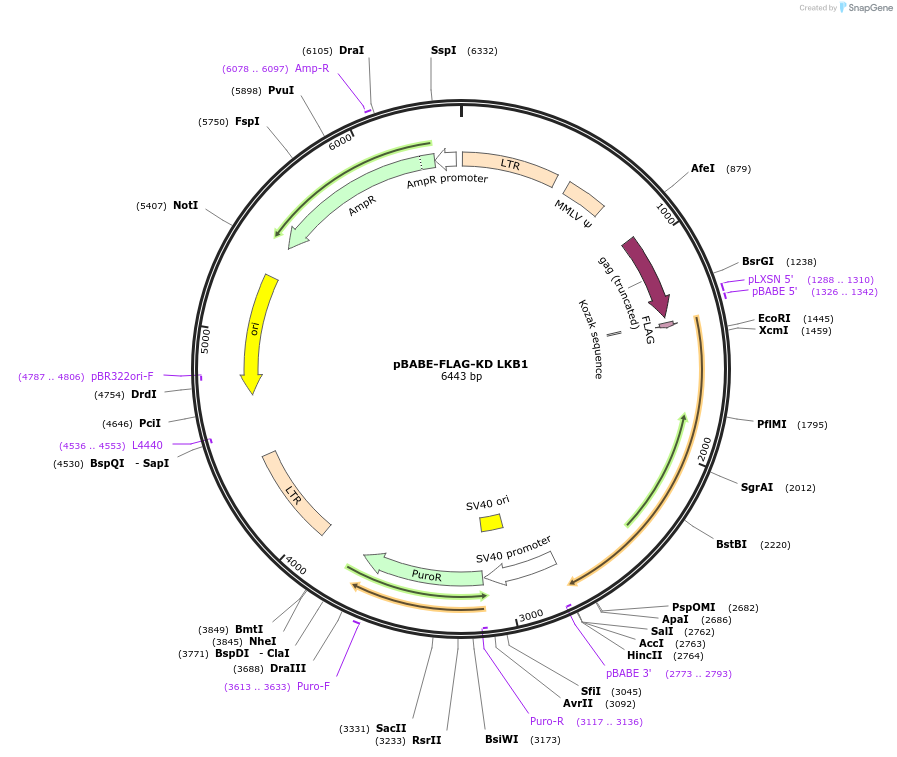-
Depositing Lab
-
Sequence Information
Ordering
| Item | Catalog # | Description | Quantity | Price (USD) | |
|---|---|---|---|---|---|
| Plasmid | 8593 | Standard format: Plasmid sent in bacteria as agar stab | 1 | $89 | |
Backbone
-
Vector backbonepBABE-puro
- Backbone size w/o insert (bp) 5169
-
Vector typeMammalian Expression, Retroviral
-
Selectable markersPuromycin
Growth in Bacteria
-
Bacterial Resistance(s)Ampicillin, 100 μg/mL
-
Growth Temperature37°C
-
Growth Strain(s)DH5alpha
-
Copy numberHigh Copy
Gene/Insert
-
Gene/Insert nameLKB1
-
SpeciesH. sapiens (human)
-
Insert Size (bp)1400
-
MutationK78I: lysine 78 mutated to isoleucine; kinase dead
-
GenBank IDQ15831
-
Entrez GeneSTK11 (a.k.a. LKB1, PJS, hLKB1)
-
Tag
/ Fusion Protein
- FLAG (N terminal on insert)
Cloning Information
- Cloning method Restriction Enzyme
- 5′ cloning site BamHI (destroyed during cloning)
- 3′ cloning site SalI (not destroyed)
- 5′ sequencing primer pBABE 5'
- (Common Sequencing Primers)
Resource Information
-
Articles Citing this Plasmid
Terms and Licenses
-
Academic/Nonprofit Terms
-
Industry Terms
- Not Available to Industry
Trademarks:
- Zeocin® is an InvivoGen trademark.
These plasmids were created by your colleagues. Please acknowledge the Principal Investigator, cite the article in which the plasmids were described, and include Addgene in the Materials and Methods of your future publications.
-
For your Materials & Methods section:
pBABE-FLAG-KD LKB1 was a gift from Lewis Cantley (Addgene plasmid # 8593 ; http://n2t.net/addgene:8593 ; RRID:Addgene_8593) -
For your References section:
The tumor suppressor LKB1 kinase directly activates AMP-activated kinase and regulates apoptosis in response to energy stress. Shaw RJ, Kosmatka M, Bardeesy N, Hurley RL, Witters LA, DePinho RA, Cantley LC. Proc Natl Acad Sci U S A 2004 Mar 9;101(10):3329-35. Epub 2004 Feb 25. 10.1073/pnas.0308061100 PubMed 14985505



